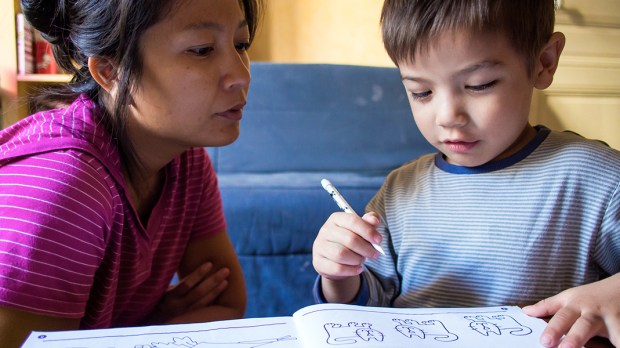As schools close all over the globe, parents suddenly find themselves at home with their kids all day, having to do what feels a lot like homeschooling. Luckily the homeschool community has got their back!
These tips from veteran homeschool parents will make this time smoother for you and your family — whether you’re also working from home or not. Long-term homeschoolers know what works and what doesn’t for learning at home, and they’re sharing their wisdom with the rest of us!
1Don’t try to recreate school at home.
First of all, take a deep breath. This is a scary time, without precedent in recent memory, but it doesn’t have to feel scary for our kids. You have the opportunity to make this time of self-isolation some of your child’s happiest childhood memories.
Make this a time of joyful connection and great communication. Think about what you and your children enjoy doing, and try to make those things central to your day. Learn together, but don’t try to recreate their school day exactly as it was at home.
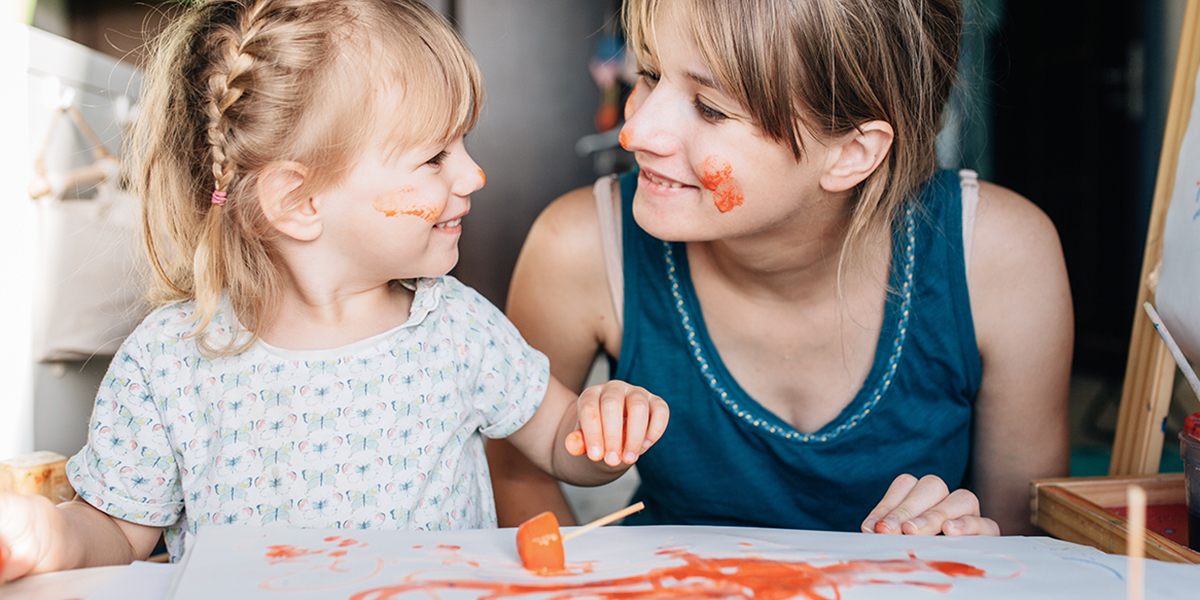
Veteran homeschool mama Jessica says it best in a viral Facebook post (emphasis added):
Resist the urge to plan every minute, general goals for the day are one thing, a rigid schedule can be stifling. Have a general rhythm but be flexible. It takes WEEKS for a classroom to settle and find their rhythm, establish guidelines, and learn their school and class culture. That’s with an experienced and trained professional, a building designed for learning, and support resources not to mention someone who is focused just on leading the class and not having to do another job at the same time. Do not expect to find that at home within days. There’s a lot of upheaval, it will take time… Do not try to copy school at home. Nobody wants that. It will breed resentment, frustration, and ultimately, failure. Work with your children to find a unique path for your family. The “school day” takes 6.5 or more hours because of the parts of the day that AREN’T about education. If your child has to do school at home while quarantined, keep in mind they may be able to get it all done in 2-3 hours, easily. OR they could feel more comfortable for their brain to do it in 8 with lots of breaks and distractions in between. Don’t try to force something, the environment is completely different and that will have an impact. It’s not good or bad, it just is. Be careful not to fall into the trap that “school” or “learning” is only written work at a desk. That’s actually the least like learning. Fully-engaged activities that utilize as many of the senses as possible with multiple learning styles (aural instruction, hands-on experience, kinesthetic involvement, creative exploration, student-shared instruction, observations, etc.) are the most effective for learning… Consider letting the days flow and look at the week overall rather than each individual day. Was there a day where all one child wanted to do was read and they read through 3 books in 8 hours? And the next day all they wanted to do was be outside and climb trees and move constantly? Cool. It all balances out in the end.
There’s so much wisdom in her post, more than I can share here. Go check it out.
2If you just do one thing, read aloud.
Kids of all ages relish being read to, and they learn so much from it. You can read all about the benefits of reading aloud in The Enchanted Hour and The Read Aloud Family, but to really understand how your kids feel about you reading aloud to them, check these verses from a poem that American poet Strickland Gillilan wrote about his favorite childhood memories:
I had a Mother who read me lays
Of ancient and gallant and golden days;
Stories of Marmion and Ivanhoe,
Which every boy has a right to know.
I had a Mother who read me tales
Of Gelert the hound of the hills of Wales,
True to his trust till his tragic death,
Faithfulness blent with his final breath.
I had a Mother who read me the things
That wholesome life to the boy heart brings–
Stories that stir with an upward touch,
Oh, that each mother of boys were such!
You may have tangible wealth untold;
Caskets of jewels and coffers of gold.
Richer than I you can never be–
I had a Mother who read to me.
Reading aloud truly brings the whole family together. It inspires your children in their play, incites their imagination, expands their vocabulary and reading comprehension—and truly is a fantastic way for them to learn in every subject area.
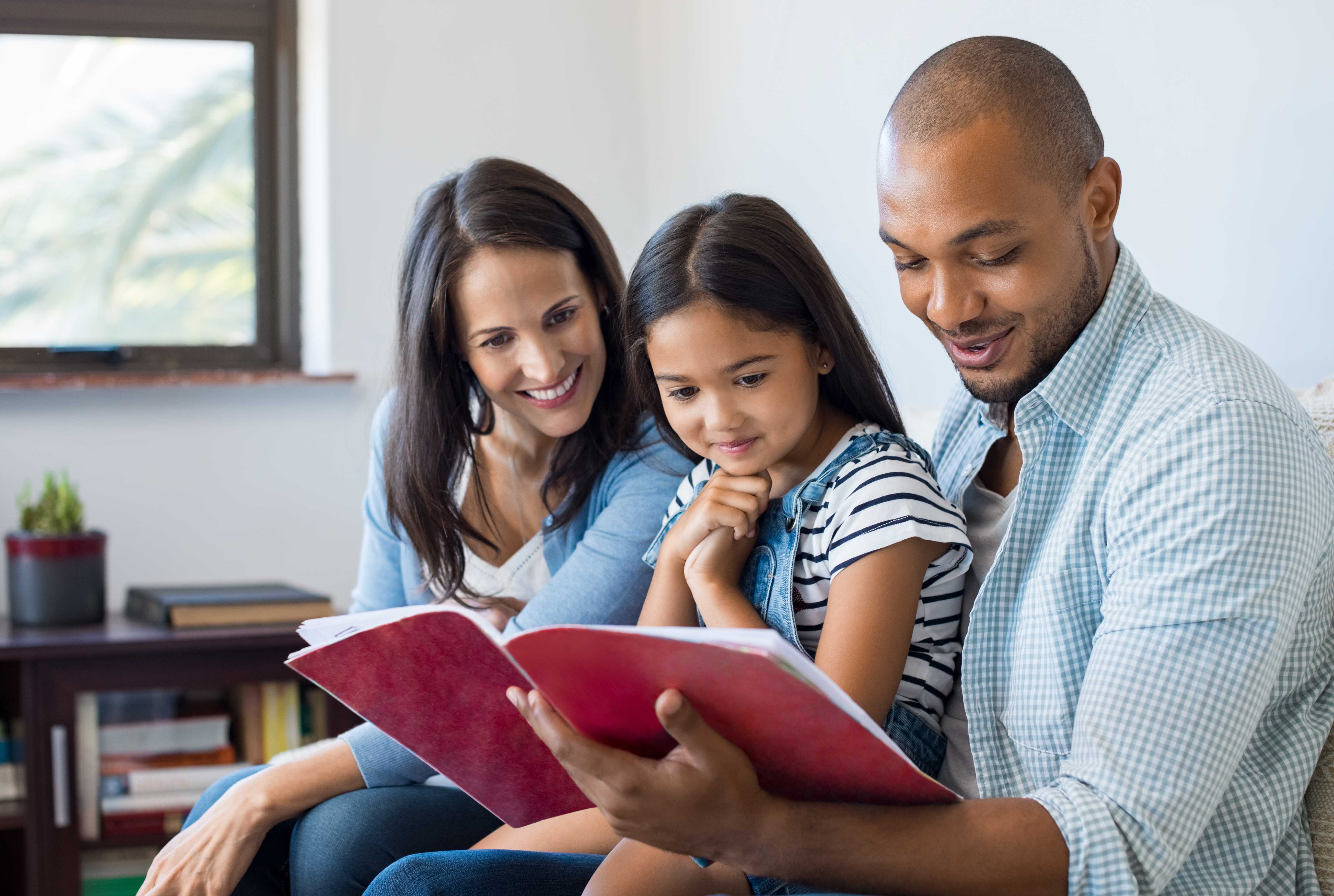
Homeschooling mother of four Rachael Ringenberg shares her best advice for reading aloud with your kids here (and check out her whole series on learning at home on short notice!):
You don’t have textbooks, curriculum, flashcards, or workbooks. But you have a something wildly more powerful than any of that. Something that will increase their vocabulary, strengthen their listening comprehension, give you a shared language of characters, and all but guarantee that they will love books as adult.
If you do nothing else educational, just read aloud. If you’re pressed for time, shoot for a chapter a day. But if you have time, and your kids will listen long enough, try for an hour or two of reading.
You won’t regret it, and your kids will treasure the time together. Someday they might even write a poem about it!
You can find great book lists to choose from at Read Aloud Revival, Ambleside Online and Mother of Divine Grace (in the “Supplemental English” tab for each grade).
3If you need to work from home with your kids around, let me introduce you to your lifesaver: audiobooks!
When you need to keep your kids busy for a good long time, but don’t want to turn on the TV quite yet, audiobooks are the answer.
You can use library apps (OverDrive, Libby), paid apps (Kindle, Audible, Scribd), or free apps (LibriVox). Just to use one example, LibriVox has hundreds of public domain books including classics like the “My Bookhouse” series and Thornton Burgess’ nature books, all well worth a listen.
For kids over 4-ish, turn on an audiobook and give them something to do with their hands (play dough, drawing, kinetic sand, handicrafts, etc.), and they should leave you alone for a solid hour at least.
4Leave space for boredom.
Do yourself a favor: Don’t even try to keep your kids entertained all day with activities. As Ringenberg says, “You are not the entertainment.” Boredom leads to creativity and learning, and you are going to burn out really fast if you try to spend the whole day entertaining them.
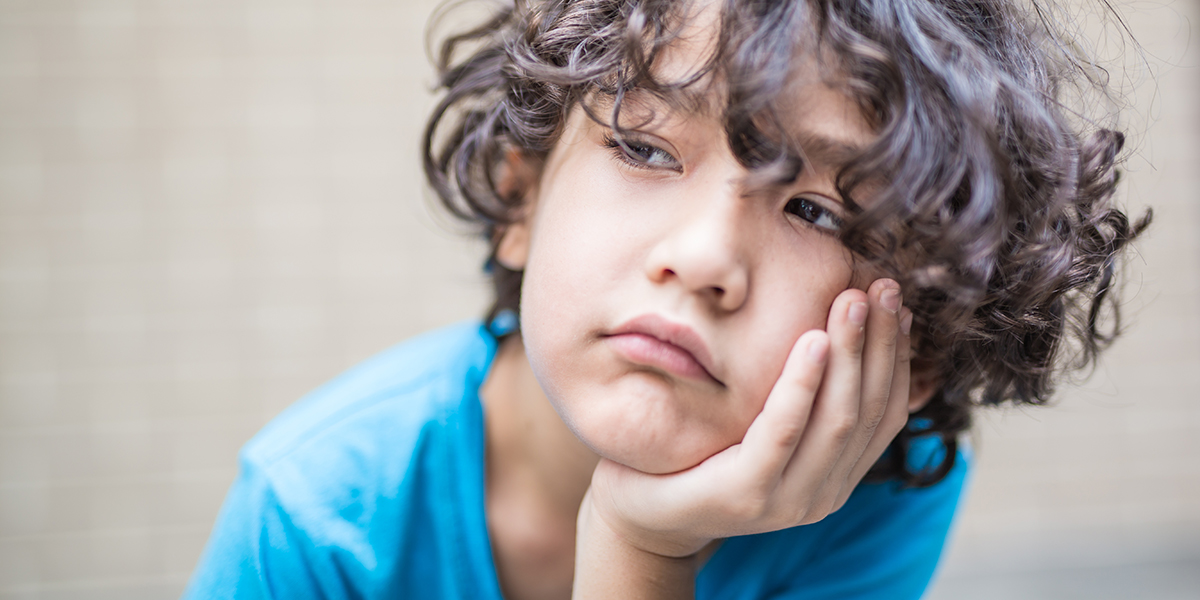
Leave your kids alone, and you might be amazed at what kinds of outside-the-box learning they dive into. And you’ll all be happier if you leave ample time in your day for open-ended, unstructured play and exploration.
5Follow the child.
The first principle of Montessori education is “Follow the child,” and many families enjoy that same approach to homeschooling. You and your children have a rare opportunity here for them to dive deep into their interests. One homeschool mom brilliantly described this as “going down the rabbit hole” of learning:
Go down the rabbit hole! Now is a great time to let your child learn what they want. When you are out exploring and you come across a pretty rock, and your child asks, “Where do rocks come from?” go with it! Research it and keep going until they are satisfied. If that leads to an entire mineral study, your child will be so excited to learn what they have questions about.
Ask what your child is interested in and wants to learn about, and take it from there. F. Scott Fitzgerald once wrote, “In spite of going to college, I’ve managed to pick up a good education.” The truth is that the deepest learning often happens outside of school, when people follow their personal interests.
6Get outside as much as possible.
I recently learned that fresh air and sunlight literally kill germs, and I felt like I found a new secret weapon. These kinds of health benefits are especially important when dealing with a contagious illness like COVID-19.
Just add that to the list of reasons why outdoor play is great for kids. I think of it as the “anti-screen-time”: While watching TV makes my kids crabby afterward, playing outside makes my kids happier the rest of the day.
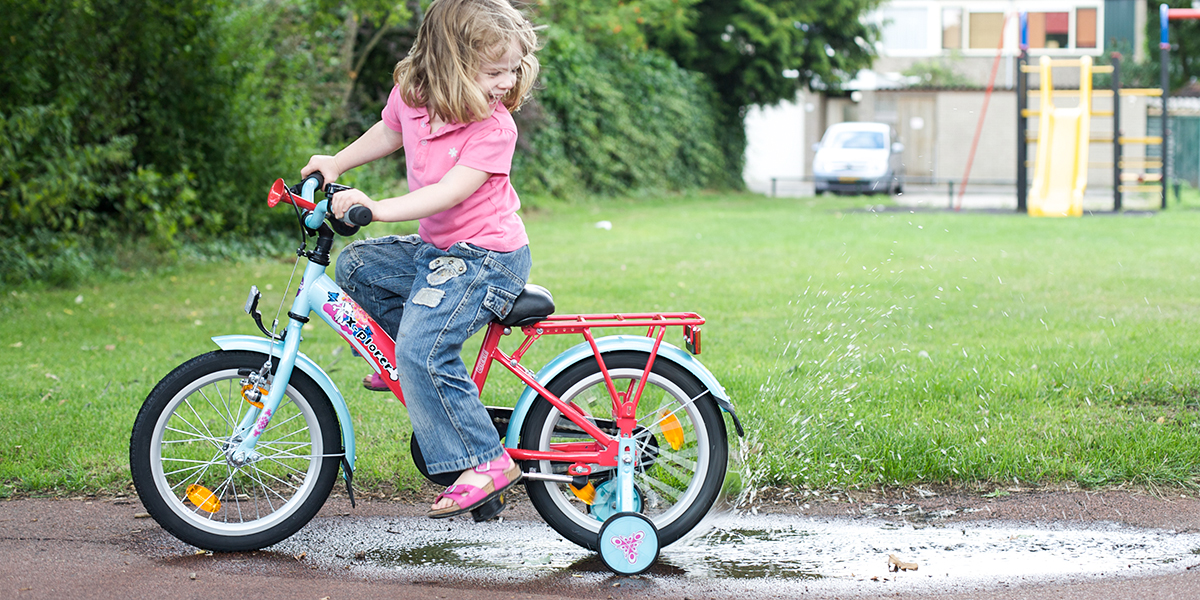
You can add a “scavenger hunt” excitement to outdoors time by learning about the animals and plants in your part of the world. Get your hands on a field guide and make it a game with your kids to spot different kinds of birds and identify species of trees. Learning about and loving the natural world is a gift your kids will cherish their whole lives.
7Teach life skills.
All this unstructured time at home is the chance of a lifetime to teach older kids about practical life skills. Cleaning and cooking are priorities; you don’t want your child to leave your house without knowing how to make some simple meals and clean a toilet. But there’s so much more they can master during this time: Gardening, music, journaling, online painting and drawing classes, how to change the oil or a flat tire on the car, knitting, woodworking.
You might have them sit with you while you do your taxes, and explain how taxes and adult finances work. Or download Duolingo so they can learn a new language for free. There is so much for them to learn, and this is the perfect time to think outside the box in teaching our children essential life skills.
8Use your morning time wisely.
First thing in the morning, after breakfast and getting dressed, is when most kids are at their best. Their attention span is at its longest and they’re fresh. Think carefully about what you want to focus on during this valuable time of day.
As a homeschool mom, my priority during this time is prayer, because first things first, and math, because language arts are easier for me to teach. I use the Magnificat for our morning time, and lucky for all of us, it’s free online right now. Every morning while my kids are gathered for breakfast, I light a candle, pray the Morning Offering, and then choose a Scripture passage to read aloud from the Morning Prayer or Mass readings.
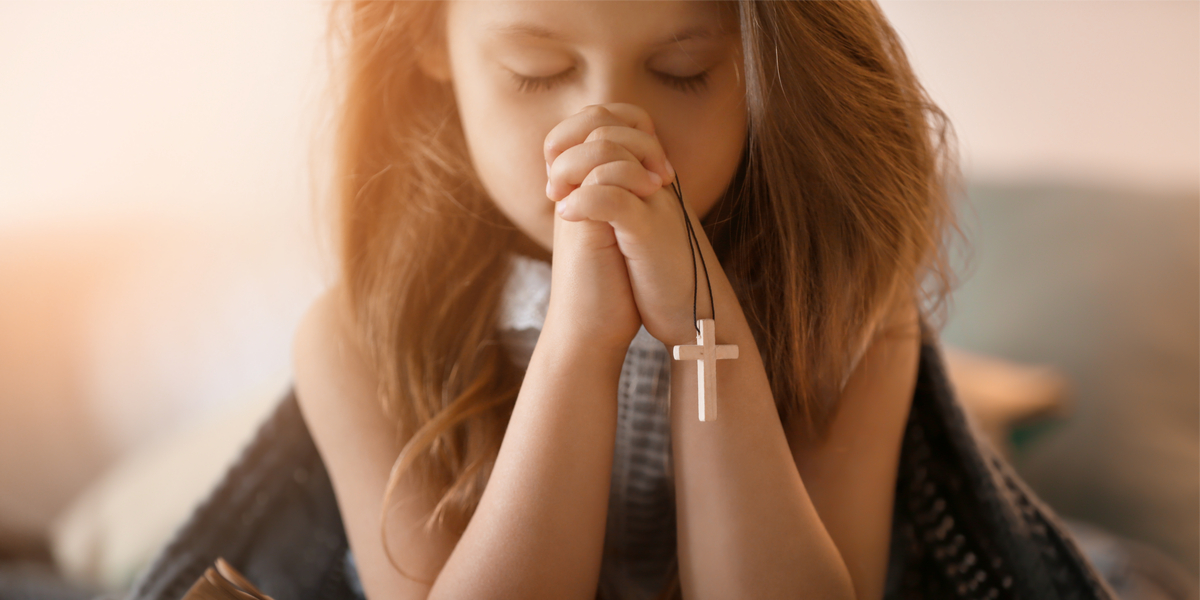
If you want to use the Magnificat readings for your homeschool mornings, here’s a kid-friendly tip: Look for passages with nature imagery (mountains, animals, trees), parables (the plot holds their attention), instructions for movement (shout with joy, sing to God), and absolutely anything about vanquishing one’s enemies (or is that just my kids?).
Getting the most important work done first thing in the morning will greatly simplify your day. Focused morning time is very popular with homeschool parents, and for good reason. You can see some great examples at Pam Barnhill’s site and Read Aloud Revival, and the similar concept of a “morning basket.”
9Be judicious in your use of screen time.
Look, let’s get one thing out of the way first: We’re in an unprecedented international crisis here. This is global trauma we are living through. Do what you have to do to get through this; zero judgment for any amount of screen time as we all figure out our new reality.
Screen time can be a great way for kids to learn while parents are free to do other things (like work from home). You can find lots of (free!) websites and apps on this great resource list. Shows like Mister Rogers’ Neighborhood and apps like LeapFrog are positive and educational.
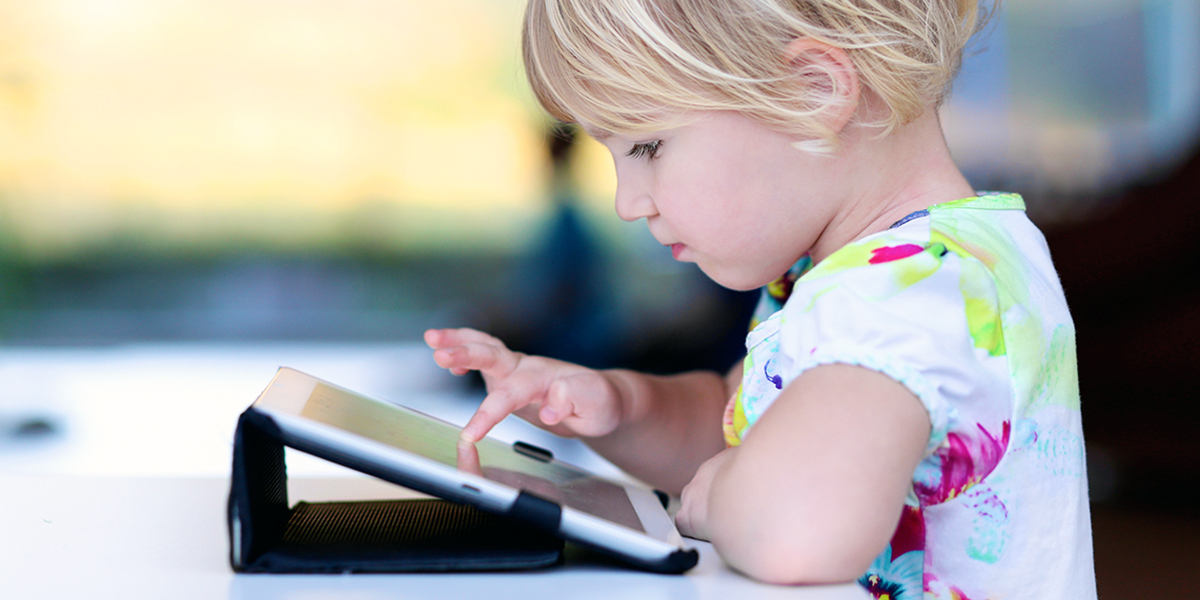
That said, if you are able to limit or completely avoid screen time, you might be surprised to find that life at home is easier. Many children, especially those younger than 6, act out when the TV or tablet is turned off and take some time to regulate again.
Eliminating screen time can prevent ups and downs and keep things on an even keel. I learned this lesson the hard way; I have three children under age 6, and after much trial and error, I’ve found that they behave so much better on screen-free days. I do my best to limit TV and movies to 2-3 times per month, and I save those rare occasions for when I really need it (work phone calls, for example).
10Let them play.
Play is the gold standard for early childhood education, and the benefits of play don’t evaporate as kids get older. Playing is a powerful way for kids of all ages to learn.
Kids can learn through board games: Ticket to Ride teaches geography, Monopoly teaches math, Scrabble teaches spelling and vocabulary. They can learn from simple games around the house, like setting up a pretend store in the living room. Imaginative play is not a distraction from their education. It may be the most important part of their education, since it is through play that they synthesize and make sense of all they have learned.
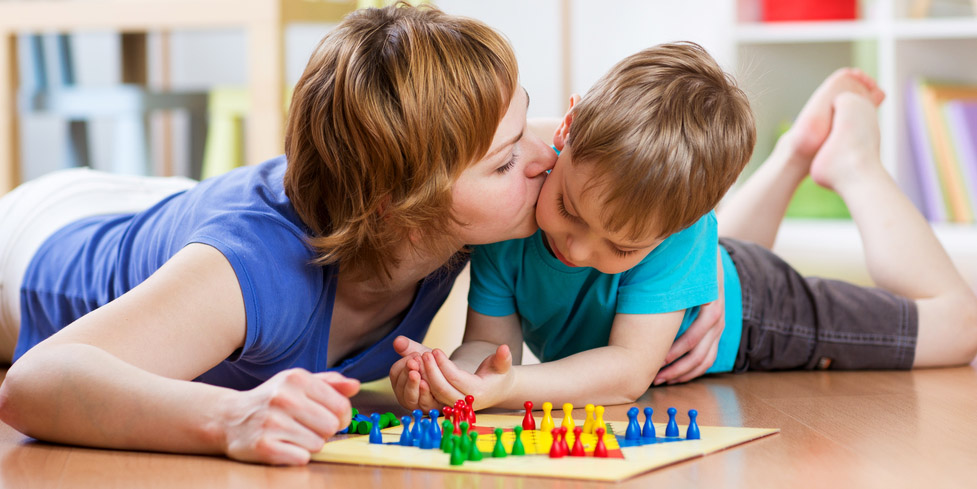
My husband was homeschooled, and his favorite thing about it was that he was able to finish all his work by lunchtime, and spend the afternoon playing. This time at home, filled with play and creativity, can lead to great family memories.
So go ahead and let them build that blanket fort, play dress-up, and build fairy homes in the yard. Enjoy the fun, and you’ll all feel happier and more at peace.
Read more:
Survival Story: First Week of Homeschool
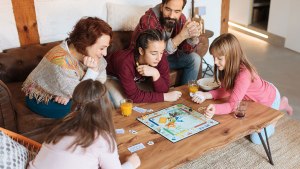
Read more:
6 No-screen family activities for cold nights
